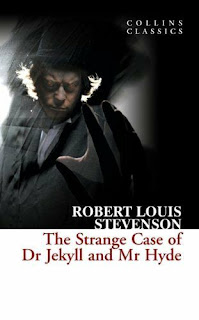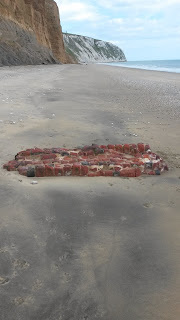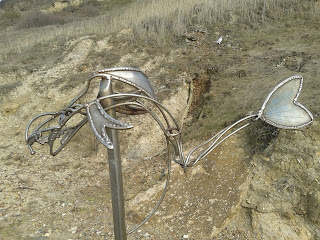two faced
#Victober continued
So I read Jane Eyre by Charlotte Bronte, as my attempt to get involved in this year's Victober. And you'll know if you read my last entry that this wasn't the recommended book, for the group read. In fact, I've not followed any of the rules, as laid down, so far, but I'm not too bothered tbh. I really enjoyed Jane Eyre, it's stayed with me for the past few weeks. Funny isn't it? You finally get around to reading these classics and you realise why they've lasted the course and have the reputation that they do. And why millions love them. Well, that's probably true for Jane Eyre, but not for all the classics, though I'm sure you'd find an advocate for any that you cared to name, if you searched hard enough.
Anyway, back to Victober. I still had two weeks left of the month and felt I should continue in the vein that I started; by not recognising any of the rules - read a book by a British author, written during the reign of Queen Victoria. Firstly I listened to three short stories on audiobook. The Mesmeric Mountain by Stephen Crane. The Kiss by Kate Chopin. The Children's Joke by E. Nesbit. Crane was American, as was Chopin, though Nesbit was a Brit. And I couldn't swear that all these stories were written during QV's reign, though all the authors were certainly alive during some part of the Victorian era. Two weeks after listening to these stories I couldn't even tell you what Crane's was about. Chopin's amused me at the time, I remember, but it's Nesbit's that I recall in most detail. I can see that the premise (swapping roles with your parents for a day) would have excited the minds of Victorian, and maybe Edwardian, children.
With days still to fill, I picked up The Strange Case of Dr Jekyll and Mr Hyde by Robert Louis Stevenson. I'm not going to lie, it had been on my shelf for years and I'd never quite got around to reading it, but I thought Why not? And, If not now, when? Plus it's very short. A novella really, 88 pages, if I hated it it would be a pain that wouldn't drag on. And it did at least fit the brief. Hurrah. Stevenson was Scottish and the book was written in 1886. Finally.
Not so many months ago, I read Frankenstein by Mary Shelley. I thought I knew that story; it's famous, it's familiar, I've seen countless movie versions. But the book turned out to be very different to what I was expecting. The same holds true for Jekyll and Hyde. It's a familiar story, I knew the bare bones of it. Although I realised I couldn't say for sure that I'd ever seen a film version, but maybe a low budget tv adaptation, where a guy drinks a potion, collapses out of view behind the sofa, and emerges as an unshaven, psychotic killer. And that's pretty much the plot of the book, though there isn't that much killing going on. It's more about a man losing control of his 'good' nature and enjoying the 'bad' side of his personality rather too much for Victorian tastes. Though he does trample a child (that's bad, right?) the story seems to be suggesting that most of the bad things he does involve keeping 'low company' in the shady part of town. So, basically he's surrendered to the lusty side of his nature; a big taboo in polite society in the 1880s (we won't get into how hypocritical the Victorians were when it came to things of a sexual nature). So the story is quite interesting from that perspective, being a psychological study of what was considered good and bad. Dr Jekyll himself narrates parts of the story, so we get an insight into his frame of mind as he increasingly recognises that he's losing control, and Jekyll's friend, Utterson, witnesses Hyde's behaviour (Jekyll retains no memories of what his Hyde persona does) so we get handed an opinion of what depravity looks and acts like.
Jekyll and Hyde is a quick read. It held my interest, and didn't outstay its welcome. It deserves its classic status by virtue of the fact that it's the original dual personality killer/thriller and has influenced every character of that nature, in that genre, to this day. Think Norman Bates in Psycho, or Kathy Bates in Misery to name but two (or maybe that should be four?).



Comments
Post a Comment